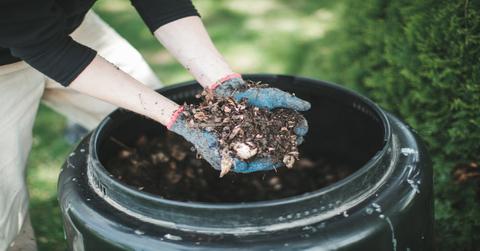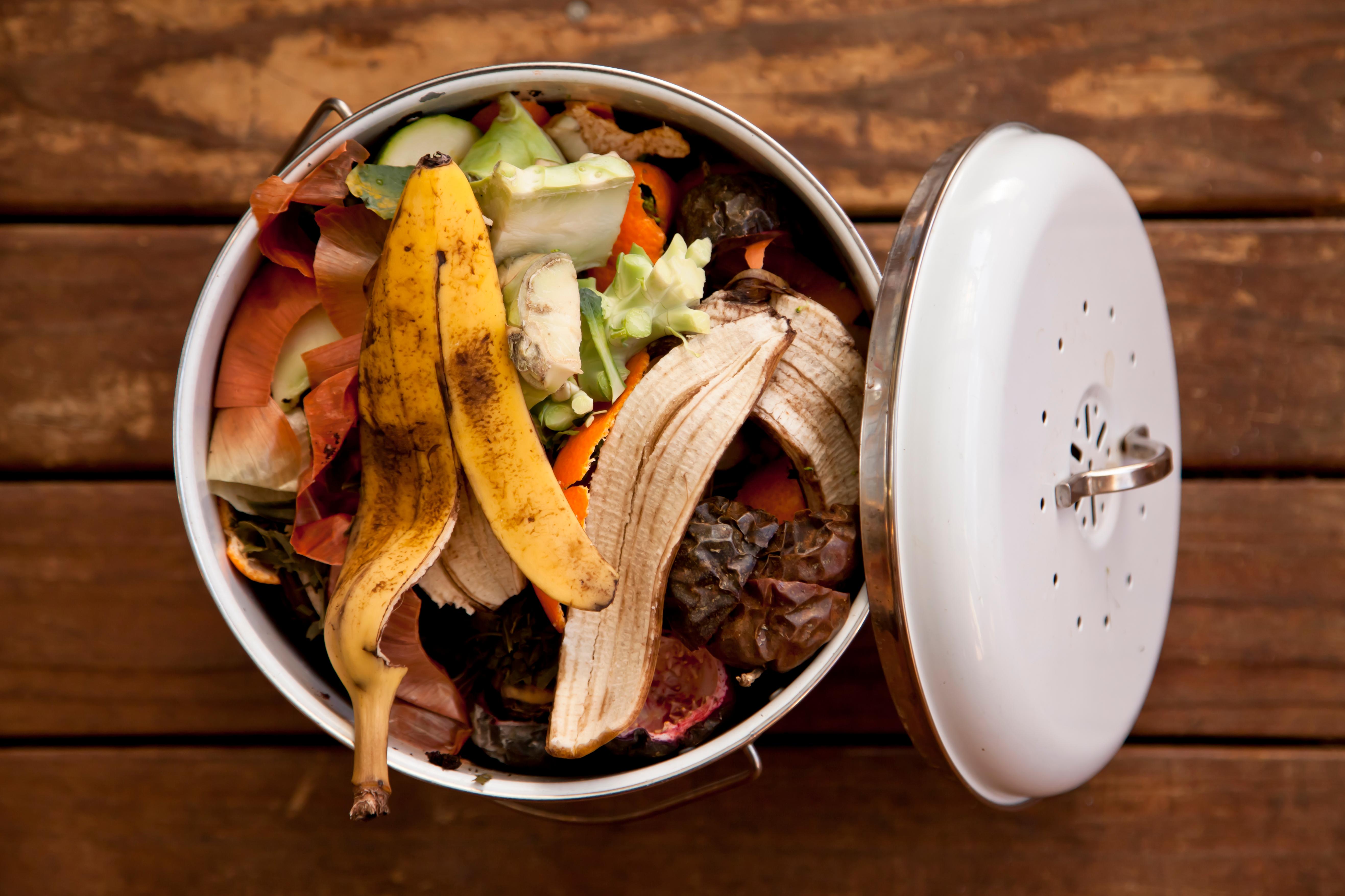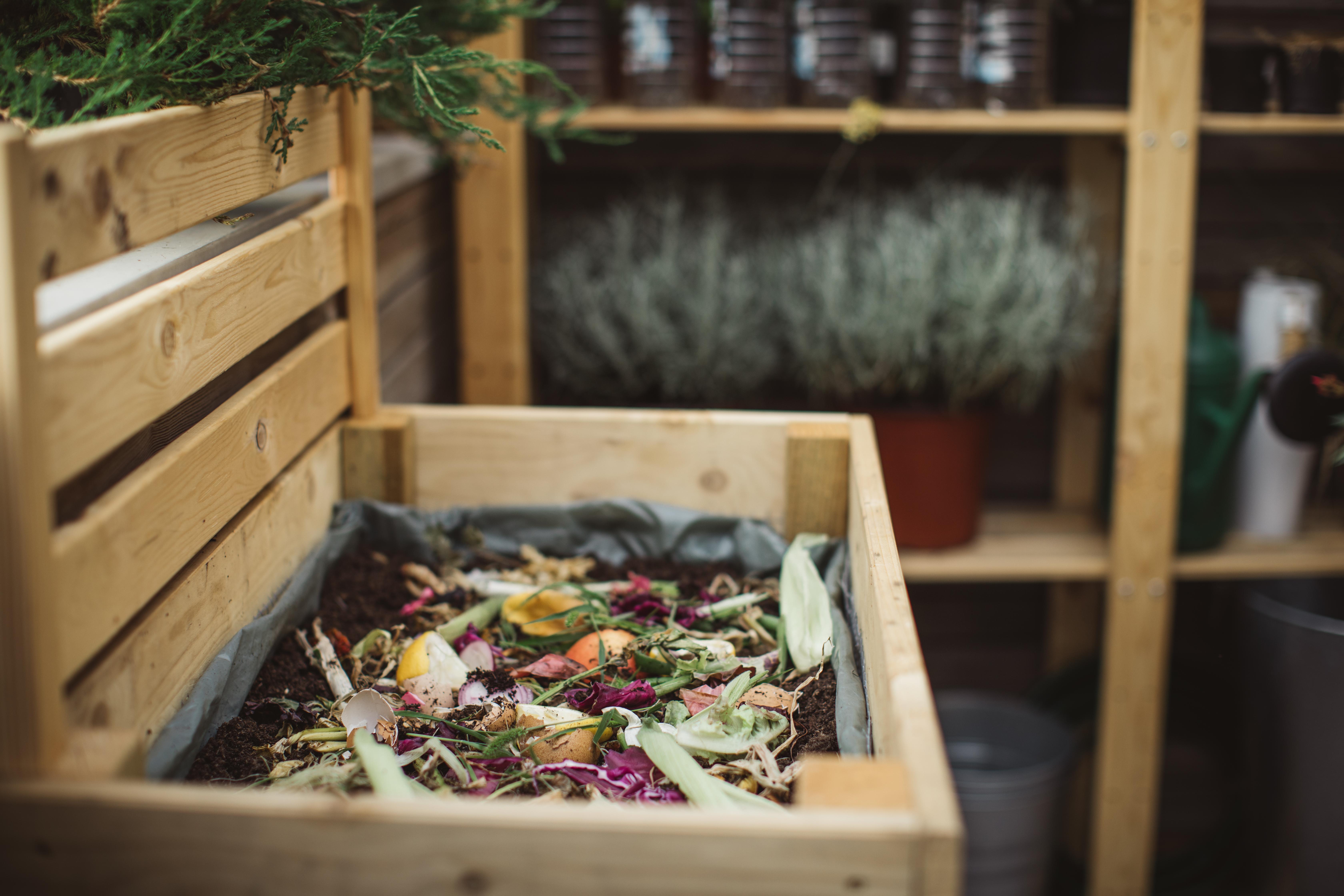This Is How You Know That Your Compost Is Officially Ready to Use
Published Nov. 10 2020, 10:28 a.m. ET

Although composting requires a little more effort than other means of disposal, it's a meaningful way to reduce your food waste at home and your environmental impact. While composting is certainly the eco-friendly choice, we also understand that it can be a daunting one. Aside from worrying about smelliness and attracting vermin, one of the most common concerns from composters is a question of efficacy. Essentially: Am I composting correctly? And if so, how do I know when my compost is ready?
Whether you are a compost newbie or a longtime veteran of transforming food scraps into soil, there are a few compost tips and tricks we can all benefit from. From reducing any potential reeking (put an airtight lid on it!) and questioning what can and can’t go in the compost (check out our ultimate guide), the community of frequent composters has an answer to just about every compost-related question. So, what about this one: How do you know when the compost is ready?

How does composting work?
Composting is the natural process of organic matter breaking down and transforming back into soil. Finished compost can be used in gardening or in the yard, so long as it’s done right. Here’s how composting works: in the right conditions – a perfect ratio of carbon to nitrogen, the presence of both oxygen and moisture, and more – organic matter will break down and become soil.
When is compost finished?
Compost is finished when it's passed through all the phases of composting and stops producing heat. It should smell deeply earthly, not like its original organic materials. Finished compost also should not look like the original organic materials. If you see big chunks or pieces of the organic matter that has not yet broken down, it’s likely not ready. However, bigger items that generally take longer to break down – such as wood chips or corn – might still be visible.
What are the phases of composting?
There are four main stages of organic materials turning into compost. The first phase is called mesophilic phase; the second phase is the thermophilic phase; the third phase is the cooling phase; and the final phase of the composting process is the curing phase.
Though “curing” is the final phase of the composing process, it can take the longest out of any of the phases. According to Common Ground Compost, curing could last anywhere from one month to a year, and it is crucial in changing the compost’s temperature and smell. When a compost is properly cured, it smells earthy, like soil and no longer emits heat. This is crucial when adding it to a garden or other natural area because uncured compost could potentially kill nearby plants by altering their environment.

How to tell if the compost is ready:
When compost is ready, there are a few physical changes you may notice. First, it should appear dark in color, like regular dirt or topsoil. It should also appear crumbly in texture, and none of the organic materials used to make it should be recognizable (as in, if you see half a lemon sticking out, it’s not done.) A compost pile that’s finished also should have reduced in size by about half the size it started.
Aside from strict appearance, a compost pile’s smell is also a significant indicator. If you were to smell the compost, “finished” compost should smell earthy, like dirt. If it smells sour or like ammonia, it’s not ready yet. Additionally, a finished compost pile should also be the same temperature as the air – approximately 50 degrees Fahrenheit.
How long does it take for compost to — well — compost?
A key part of understanding if compost is ready is, of course, a general timeline. How long compost takes to fully transform into compost depends on how big the pile is, what it's primarily made up of, and how it's taken care of it. Based on these three important factors, Gardeners.com explains that the composting process could take anywhere from three months to two years. If your compost pile seems to be breaking down slowly, try troubleshooting some of the most common compost problems.
To better understand the timeline of your compost pile’s readiness, make sure it’s not too large or too small. The ideal compost pile size is about 3 feet wide by 3 feet high so that it heats up appropriately enough to break down quickly.

Adding oxygen is also crucial to increasing the compost's efficacy and breakdown time.To do this, you can frequently turn over the compost pile, about once a week. But, if you're looking for a more hands-off approach, aerating the compost pile (similarly to how you would aerate a lawn) will also introduce enough oxygen. To aerate your compost pile, you can i a compost aerator.
An ideal compost should also maintain a carbon to nitrogen ratio of about 20:1. If your compost requires more carbon, you can add carbon-rich items such as dry leaves and shredded paper. Alternatively, if your compost requires more nitrogen, add nitrogen-rich items such as food scraps and grass clippings.
Another reason your compost could be taking too long is its moisture level. While compost should be generally moist, it should not be too soggy or else it will take a much longer time to break down.
If all of these compost elements are addressed and being taken care of, your compost pile is most likely to take the average amount of time to turn into soil. If one of these main elements is off, it might take longer than necessary, but otherwise, it's probably good to go!